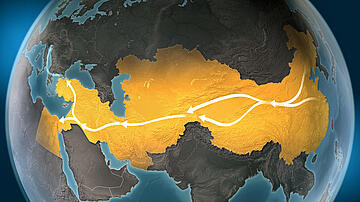China Lecture Series
Gaining Ground, Gaining Influence? Vote Shares and Power in the Asian Infrastructure Invest-ment Bank (AIIB)

This lecture series is co-organized by the Centre for Modern East Asian Studies at the University of Göttingen and the Kiel Institute China Initiative.
Speaker: Soo Yeon Kim (National University of Singapore)
Why do countries join the Asian Infrastructure Investment Bank (AIIB) and what do countries that have joined gain from membership? This paper examines the distribution of vote shares in the AIIB relative to that of existing international financial institutions (IFIs). Our analysis of the distribution of vote shares across the AIIB, the World Bank, the International Monetary Fund (IMF), and the Asian Development Bank (ADB) supports the hypotheses: countries with lower vote shares in the existing IFIs are more likely to join the AIIB and member states have higher vote shares in the AIIB than in each of the other IFIs.
The results of the OLS regressions suggest that the size of vote shares in existing IFIs is a strong deter-minant of countries’ decision to accede to the AIIB and that the distribution in vote shares in the AIIB are strongly correlated with the distribution of vote shares in these other IFIs. Countries systematically gain more vote shares in the AIIB than in the other IFIs and this gain in vote shares in the AIIB is most pronounced vis-a-vis the IMF, followed by the World Bank and the ADB. Developing countries also experience higher gains in vote shares than developed countries. The results also present no evidence that the distribution of vote shares in the AIIB privilege countries with greater political or economic proximity to China, which challenges the dominant explanation that the AIIB serves as an instrument that reflects or furthers Chinese interests.
This paper contributes to the scholarship on the implications of international institutions created by rising powers on global governance, as well as whether Chinese-led international institutions conform to or deviate from existing rules and norms of international institutions.